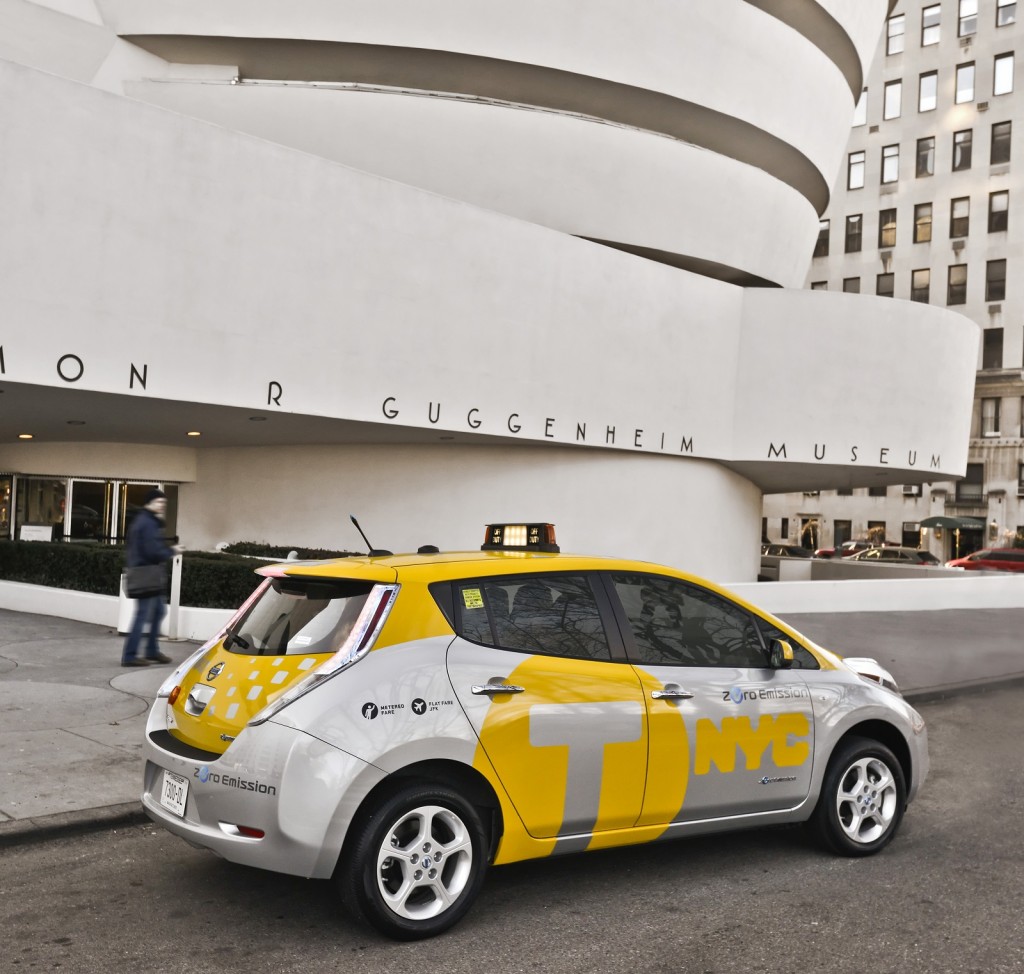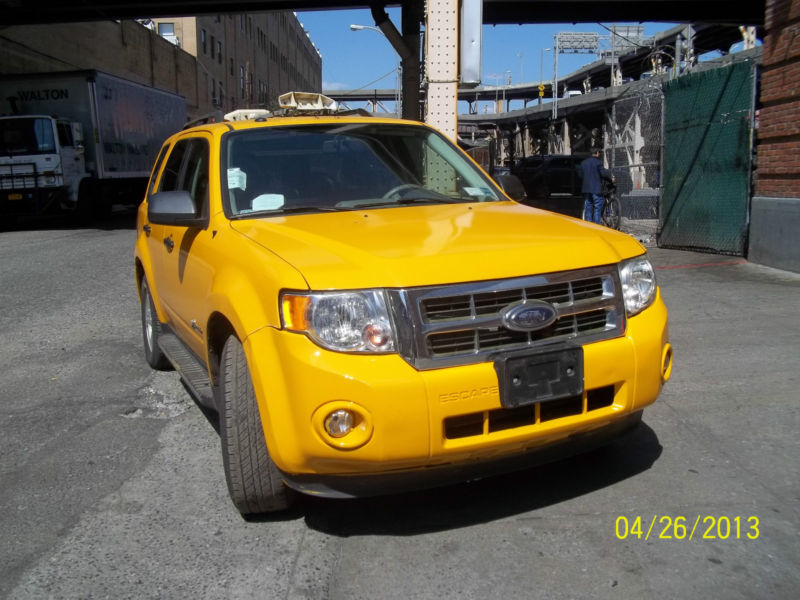The electrification of New York City streets is continuing.
In addition to passing legislation that will make 20 percent of new parking spaces electric-car ready, the city government would like to make one third of New York taxicabs electric by 2020.
Mayor Michael R. Bloomberg set that goal in his January 2013 State of the City Address, and created the Long-Term Electric Taxi Task Force to figure out what it would take to implement that goal.
The Task Force included the city's Taxi and Limousine Commission, electric utility Con Edison, and the Metropolitan Taxicab Board of Trade. It issued its report on the feasibility of the electric-taxi initiative the day before Bloomberg left office.
DON'T MISS: Five Big Myths About Green Cars And Gas Mileage, Debunked
2013 Nissan Leaf electric car tested as taxi in New York City, April 2013
Yellow cabs go green
One third of New York's medallion taxi fleet comes out to 4,412 cars, and the Task Force expects significant environmental benefits.
The report estimates that electrification would eliminate 55,640 tons of CO2 emissions, a decrease of 18 percent. Analysts say that would be the equivalent of replacing 35,000 private internal-combustion cars with plug-ins, due to the cabs' much higher annual mileage.
Electric taxis would also save 13 million gallons of gasoline per year and--the report says--protect operators against fluctuating gas prices.
An optimistic view
However, the plan assumes that electric-car technology will continue to improve at the rate it has over the past few years, driving down prices.
The Task Force anticipates that vehicle purchase prices and battery prices will steadily decline, predicting that a suitable electric taxi will cost $33,370 in 2017, and $30,990 in 2025.
It also assumes the $7,500 Federal tax credit for electric cars will remain until at least 2025, and that electric taxis will be cheaper to maintain.
Given these factors, the report projects that the total cost of ownership of an electric taxi will be less than that of an internal-combustion one over the lifetime of the vehicle.
Even without the Federal tax credit, the total cost of an electric cab will be lower than a gasoline one, the report says.

2009 Ford Escape Hybrid New York taxi (Image: eBay Motors)
Quick-charging needed
Of course, electric taxis will require charging stations: The Task Force estimated that a one-third electric taxi fleet would require a network of 350 50-kilowatt quick-charging stations, placed in parking garages, surface parking lots, or curbside.
This would create a 1:13 ratio of charging stations to electric taxis. Analysts say the city's grid has the capacity to handle these stations.
Assuming an average battery pack of 35-kilowatt-hours, it's estimated that drivers will spend 40 minutes per shift charging.
Note that 35-kWh is somewhat larger than the 24-kWh packs in the Nissan Leaf and eNV200--two electric vehicles that have previously been demonstrated in taxi service. A few Leaf taxis are already in the hands of New York cabbies.
The Task Force believes the larger battery will be required to meet the demands of a typical shift.
ALSO SEE: Which Is Greener: Flying Or Driving To Your Destination?

Wrecked Ford Crown Victoria NYC taxi cab parked at the side of the street in New York City
What next?
With fleet electrification apparently feasible, New York City may continue its experiments with plug-in taxis.
The Task Force recommends tentative steps, including talking with vehicle manufacturers about potential taxi models, potentially modifying Taxi and Limousine Commission rules to encourage electric taxis, and seeking funds to build up a charging network.
It's unclear whether new Mayor Bill De Blasio will push as hard to green the yellow cab fleet as his predecessor, however.
And given that taxi owners routinely file lawsuits against any NYC regulations that attempt to control the vehicles eligible to become medallion cabs, there's undoubtedly litigation ahead.
In other words, there's quite a bit of work to be done--and just under six years to do it.
_______________________________________________











